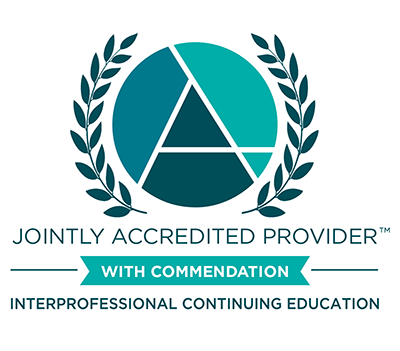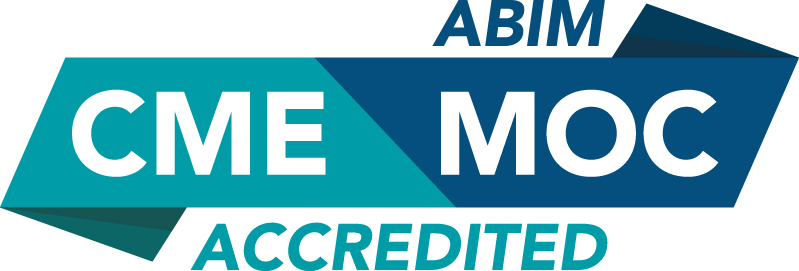Recognition and Management of Anxiety Disorders in Children and Adolescents 2024-26
Attention UW/UW Health Faculty and Staff: You Must Log in to See Your Reduced Fee.
Course Overview
This course provides interactive learning experiences to explore the burden of pediatric anxiety disorders, signs and symptoms of anxiety in children/adolescents, and approaches to anxiety management in pediatric populations. Participants have multiple opportunities to engage in learning by viewing a TED Talk-style presentation, working with clinical cases and receiving immediate feedback, contributing to a discussion forum, and studying provided educational resources.
Practice Gaps and Needs
Anxiety disorders are the most common mental health problem in youth, affecting up to 20-30% of children and adolescents; and are associated with increased risk of depression, substance use, learning problems, suicide, and comorbid medical conditions. Despite this, only a quarter of all youth receive treatment for anxiety and other mental health disorders amidst a national shortage of pediatric mental health professionals. Given this, there is a critical need for effective collaboration among multidisciplinary professionals including school psychologists and social workers, nurses, primary care providers, and mental health clinicians in the early identification and treatment of anxiety disorders in youth. Many healthcare professionals who commonly interface with children and adolescents, including in schools and clinical settings, are uniquely poised to identify symptoms of anxiety, and provide first-line interventions, yet often lack training and knowledge in pediatric anxiety disorders to do so.
Elements of Competence
This continuing education (CE) activity is designed to improve learner competence in the following areas:
- ACGME/ABMS Competencies - Patient care and procedural skills, Medical knowledge, Interpersonal and communication skills
- Interprofessional Education Collaborative Competencies - Roles/responsibilities, Interprofessional communication
Intended Audience
This activity is planned by an interprofessional team of faculty and is intended for school psychologists, school social workers, nurses, primary care clinicians, general psychiatrists, psychologists, and other healthcare professionals who provide care to pediatric patients.
Learning Objectives
As a result of participation in this educational material, members of the healthcare team will improve their ability to:
- Discuss burden of pediatric anxiety disorders in children.
- Recognize variations in the signs and symptoms of pediatric anxiety disorders, including generalized anxiety disorder, social anxiety disorder, and separation anxiety disorder.
- Use interview techniques, and available screening and assessment tools to diagnose an anxiety disorder.
- Apply psychological, behavioral and pharmacological interventions to reduce anxiety in children.
- Effectively collaborate with patients, families, and other healthcare professionals in managing anxiety disorders in children.
CURRENT PLANNING COMMITTEE (2024)
| Marcia Slattery, MD, MHSc Activity Chair Professor of Psychiatry and Pediatrics Director, UW Anxiety Disorders Program Department of Psychiatry School of Medicine and Public Health University of Wisconsin - Madison | Christy Olson, PhD Licensed Clinical Psychologist Department of Psychiatry School of Medicine and Public Health University of Wisconsin - Madison |
| Daniel Eagle, DO CAP1 Fellow Department of Psychiatry School of Medicine and Public Health University of Wisconsin - Madison | Marcy Weidkamp, APNP Pediatric Gastroenterology Clinic American Family Children's Hospital Department of Pediatrics School of Medicine and Public Health University of Wisconsin - Madison |
| Meriel Rongstad, MD Associate Professor Department of Psychiatry School of Medicine and Public Health University of Wisconsin - Madison | Jenny Tumba, MD Child & Adolescent Psychiatry Fellow Department of Psychiatry School of Medicine and Public Health University of Wisconsin - Madison |
| Hilleary Reinhardt, LCSW UW Health | Kristin Blake, MD UW Health |
FACULTY DISCLOSURE
It is the policy of the University of Wisconsin–Madison Interprofessional Continuing Education Partnership (ICEP) to identify, mitigate and disclose all relevant financial relationships with ineligible companies* held by the speakers/presenters, authors, planners, and other persons who may influence the content of this accredited continuing education (CE). In addition, speakers, presenters and authors must disclose any planned discussion of unlabeled/unapproved uses of drugs or devices during their presentation.
* Ineligible companies are those whose primary business is producing, marketing, selling, re-selling, or distributing healthcare products used by or on, patients.
The ACCME does not consider providers of clinical services directly to patients to be ineligible companies.
For this accredited continuing educational activity all relevant financial relationships have been mitigated and detailed disclosures are listed below:
Name | Role | Financial Relationship Disclosures | Discussion of Unlabeled/Unapproved uses of drugs/devices in presentation? |
| Marcia Slattery, MD, MHSc | Medical Director, Planner, Speaker/Author | No relevant relationships with ineligible companies to disclose | No |
| Marcy Weidkamp, APNP | Planner | No relevant relationships with ineligible companies to disclose | No |
| Christy Olson, PhD | Planner | No relevant relationships with ineligible companies to disclose | No |
| Meriel Rongstad,MD | Planner | No relevant relationships with ineligible companies to disclose | No |
| Jenny Tumba, MD | Commiittee Member | No relevant relationships with ineligible companies to disclose | No |
| Daniel Eagle, DO | Peer Reviewer | No relevant relationships with ineligible companies to disclose | No |
| Hilleary Reinhardt, LCSW | Peer Reviewer | No relevant relationships with ineligible companies to disclose | No |
| Kristin Blake, MD | Peer Reviewer | No relevant relationships with ineligible companies to disclose | No |
We gratefully acknowledge the contributions of the original planners and authors
| Timothy Chybowski, MD Clinical Professor Department of Pediatrics School of Medicine and Public Health University of Wisconsin - Madison | Gina Forte, DO Clinical Assistant Professor Department of Psychiatry School of Medicine and Public Health University of Wisconsin - Madison |
| Jeremy Peacock, MD Clinical Associate Professor Department of Psychiatry School of Medicine and Public Health University of Wisconsin - Madison |
Accreditation Statement
 | In support of improving patient care, the University of Wisconsin–Madison ICEP is jointly accredited by the Accreditation Council for Continuing Medical Education (ACCME), the Accreditation Council for Pharmacy Education (ACPE), and the American Nurses Credentialing Center (ANCC) to provide continuing education for the healthcare team. |
Credit Designation Statements
American Medical Association (AMA)
The University of Wisconsin–Madison ICEP designates this enduring activity for a maximum of 1 AMA PRA Category 1 Credits™. Physicians should claim only the credit commensurate with the extent of their participation in the activity.
American Nurses Credentialing Center (ANCC)
The University of Wisconsin–Madison ICEP designates this enduring activity for a maximum of 1 ANCC contact hours, 0.25 of which is eligible for pharmacotherapeutic contact hours.
ASWB Approved Continuing Education (ACE)
 | As a Jointly Accredited Organization, the University of Wisconsin–Madison ICEP is approved to offer social work continuing education by the Association of Social Work Boards (ASWB) Approved Continuing Education (ACE) program. Organizations, not individual courses, are approved under this program. State and provincial regulatory boards have the final authority to determine whether an individual course may be accepted for continuing education credit. The University of Wisconsin–Madison ICEP maintains responsibility for this course. Social workers completing this course receive 1.0 enduring continuing education credit. |
American Psychological Associate (APA)
 | Continuing Education (CE) credits for psychologists are provided through the co-sponsorship of the American Psychological Association (APA) Office of Continuing Education in Psychology (CEP). The APA CEP Office maintains responsibly for the content of the programs. |
Continuing Education Units
The University of Wisconsin–Madison, as a member of the University Continuing Education Association (UCEA), authorizes this program for 0.1 continuing education unit (CEUs) or 1 hour.
Maintenance of Certification
American Board of Pediatrics (ABP)
Successful completion of this CME activity, which includes participation in the activity and individual assessment of and feedback to the learner, enables the learner to earn up to 1.0 MOC points in the American Board of Pediatrics’ (ABP) Maintenance of Certification (MOC) program. It is the CME activity provider’s responsibility to submit learner completion information to ACCME for the purpose of granting ABP MOC credit.
American Board of Internal Medicine (ABIM)
 | Successful completion of this CME activity, which includes participation in the evaluation component, enables the participant to earn up to 1 Medical Knowledge MOC points in the American Board of Internal Medicine's (ABIM) Maintenance of Certification (MOC) program. Participants will earn MOC points equivalent to the amount of CME credits claimed for the activity. It is the CME activity provider's responsibility to submit participant completion information to ACCME for the purpose of granting ABIM MOC credit. |
Available Credit
- 1.00 MOC: ABIM Medical Knowledge Points (Part II)
- 1.00 MOC: ABP Lifelong Learning Points (Part II)
- 1.00 AMA PRA Category 1 Credit™
- 1.00 ANCC Contact Hours
- 0.25 ANCC Pharmacotherapy Contact Hours
- 1.00 APA CE Credits
- 1.00 University of Wisconsin–Madison Continuing Education Hours
- 1.00 Approved for AMA PRA Category 1 Credit™
Registration for this activity can only be completed through the ICEP Learning Portal. Attendee registrations made through any other sites cannot be honored. UW-Madison ICEP is not able to refund fees paid through unaffiliated registration sites, such as eMedEvents.com, MedConfWorld.com, EventEgg.com, and 10times.com. Please report any unauthorized websites or solicitations for registrations to [email protected]
Accessibility
If you need anything to participate in this program, please contact [email protected].
Required Hardware/software
Computer, tablet, or other mobile device with sound.
Free, current version of Edge, Firefox, Safari, or Chrome. Some older browsers and Internet Explorer could produce error messages or not display the content correctly.
Free, current version of Adobe Acrobat Reader or other .pdf reader

 Facebook
Facebook X
X LinkedIn
LinkedIn Forward
Forward